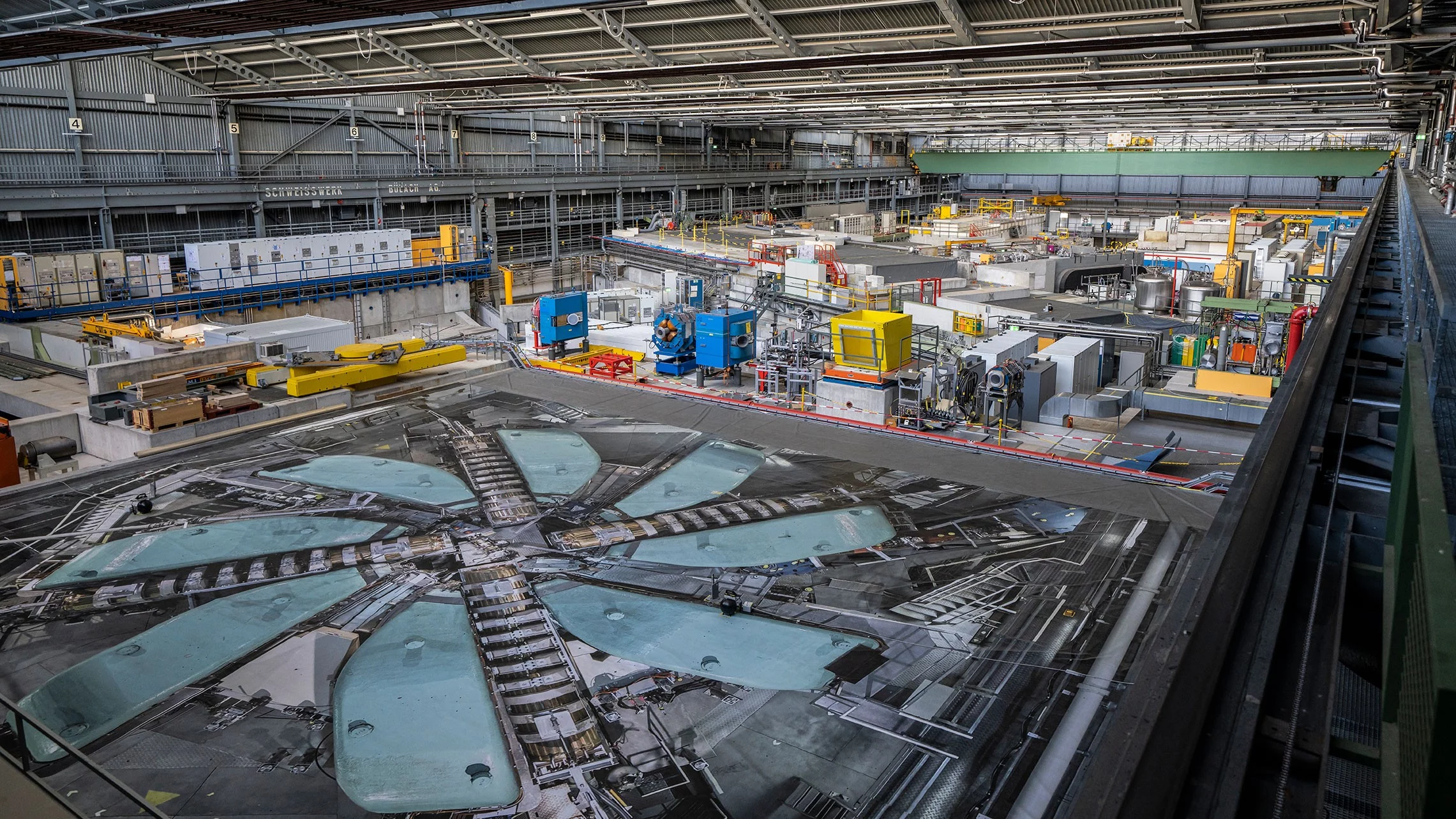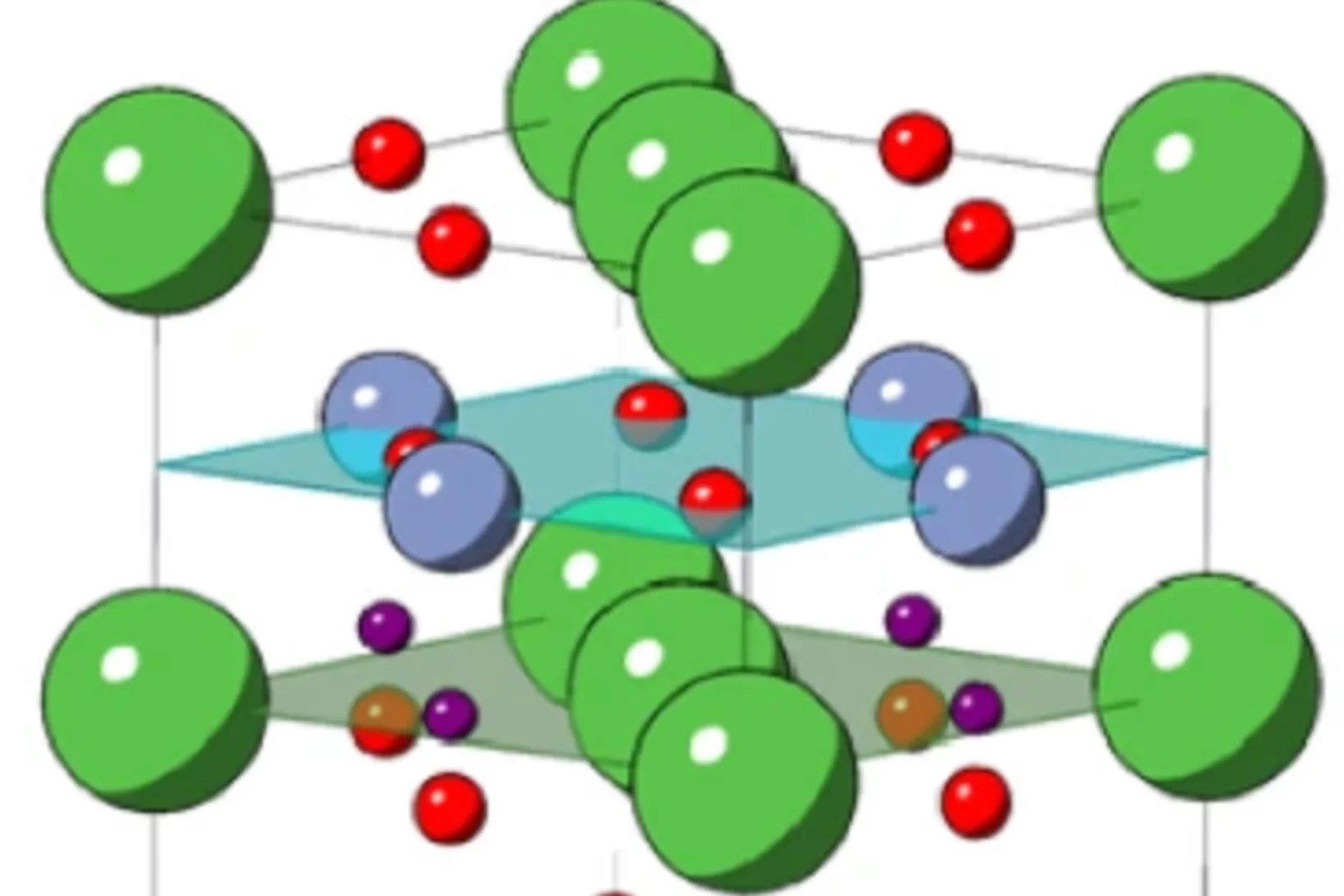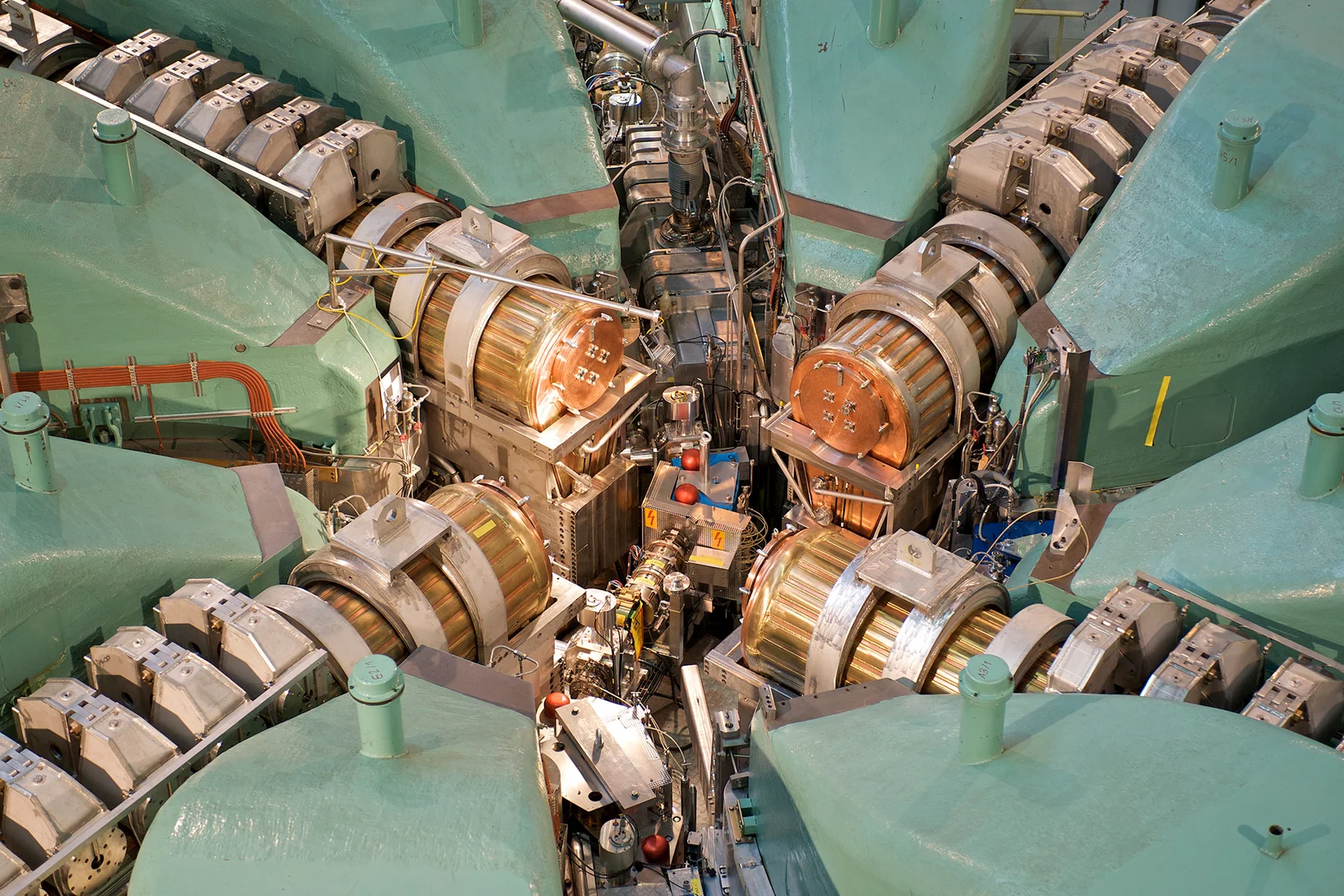µSR - Muon Spin Rotation, Relaxation or Resonance: A research tool using muons as sensitive local magnetic probes in matter.
Research at the LMU focuses mainly on magnetic properties of materials and on positive muons or muonium (bound state of a positive muon and an electron) as light protons or hydrogen substitutes in matter.
Worldwide unique: The Low-Energy Muon Beam and µSR Spectrometer for the study of thin films, layers and surfaces, the possibility to perform high-field µSR with a field up to 9.5 Tesla, and the Extraction of Muons On Request for high frequency resolution and slow relaxation measurements.
Call for Proposals
Next Deadline: December 01, 2024.
Latest Scientific Highlights and News
Anomalous Hall Effect due to Magnetic Fluctuations in a Ferromagnetic Weyl Semimetal
The anomalous Hall effect (AHE) has emerged as a key indicator of time-reversal symmetry breaking (TRSB) and topological features in electronic band structures. Absent of a magnetic field, the AHE requires spontaneous TRSB but has proven hard to probe due to averaging over domains. The anomalous component of the Hall effect is thus frequently derived from extrapolating the magnetic field dependence of the Hall response. We show ....
Pressure-enhanced splitting of density wave transitions in La3Ni2O7–δ
The observation of superconductivity in La3Ni2O7–δ under pressure, following the suppression of a high-temperature density wave state, has attracted considerable attention. The nature of this density wave order was not clearly identified. Here we probe the magnetic response of the zero-pressure phase of La3Ni2O7–δ as hydrostatic pressure is applied, and find that the apparent single density wave transition at zero applied pressure splits into two. The comparison of our muon-spin rotation ...
Anisotropic Skyrmion and Multi-q Spin Dynamics in Centrosymmetric Gd2PdSi3
Skyrmions are particlelike vortices of magnetization with nontrivial topology, which are usually stabilized by Dzyaloshinskii-Moriya interactions (DMI) in noncentrosymmetric bulk materials. Exceptions are centrosymmetric Gd- and Eu-based skyrmion-lattice (SL) hosts with zero DMI, where both the SL stabilization mechanisms and magnetic ground states remain controversial. We address these here by investigating both the static and dynamical spin properties ...
Further Information
User Contacts
- User Office
Provides all information about user research at PSI Large Research Facilities - DUO Login




